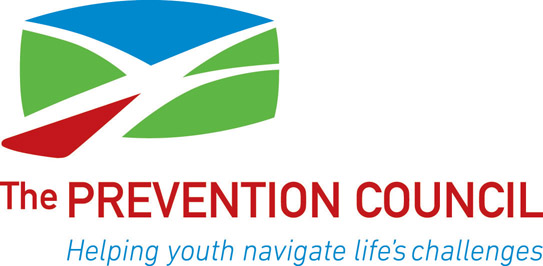Recovering heroin addict Andrew McKenna speaks at library
Story by: Jennie Grey
Seen in: The Saratogian
Link to full article found at: http://www.saratogian.com/article/ST/20160408/NEWS/160409719#disqus_thread
April 8, 2016
SARATOGA SPRINGS >> Andrew McKenna has lived a life of interesting irony: A former federal prosecutor, he became addicted to heroin and committed multiple bank robberies, ending up in federal prison. Now in recovery and free, he has transformed himself into an author and public speaker who inspires others to overcome addiction and adversity; and April 7, he spoke at Saratoga Springs Public Library.
The event was sponsored by Recovery Advocacy in Saratoga (RAIS) and the Prevention Council. The library’s community room was packed with people come to hear McKenna’s testimony.
“His talk was compelling,” said Janine Stuchin, executive director of the Prevention Council.
In a clear, deep, carrying voice, McKenna began his story in the middle.
“I was heading into Schenectady to get heroin after robbing my sixth and last bank,” he said. “I considered driving my car into a pylon and killing myself. I got as far as undoing my seatbelt and speeding up to 100 miles an hour. I thought, I could end this depression, this anxiety, the terror, the feeling of loss. But something spoke to me and told me not to do it.”
When McKenna was pulled over a little while later, he found himself facing an armed police officer, who told him to keep his hands up.
If I just drop my hands, it’ll be all over, McKenna thought. And he started to lower his arms.
The same inner voice said to him, “You can’t do this to your kids.”
McKenna’s sons were four and three at the time. He had lost custody of them to his former wife and had to fight for visitation, for even one visit a month. Depression and anger had swept over him, propelling him into a wave of crime for which he had finally been caught.
But it had all begun with pain, both emotional and physical.
Born in Schenectady in 1969, McKenna attended public school and then joined the Air Force, rising to the rank of sergeant. After leaving the Air Force, he attended the State University of New York at Albany. He then attended Albany Law School and also joined the Marines. After graduating, he became an active-duty Marine, attaining the rank of captain.
A few years later, he joined the United States Justice Department as a special assistant U.S. attorney. Later, he became a prosecutor for the Narcotic and Dangerous Drug Section of the Criminal Division of the Justice Department.
“Now, graduates from Albany Law School don’t usually get hired by the Department of Justice,” McKenna said. “Generally, the department wants graduates from Harvard or Yale. But I fooled a lot of people into believing I was better than I was.”
From high school, he had drunk alcohol, smoked marijuana and took acid. While in the Marines, McKenna had suffered a back injury during a training exercise, and since then had been taking both prescribed and street opiate pain medication and other narcotics. Acquiring and taking these drugs began to wreck havoc with his life.
“I was flying high on the outside,” he said. “I was terrible on the inside.”
“Andrew noted honestly that as a young person, at his core, he began using drugs to feel better about himself and to self-medicate,” Stuchin said. “There is a strong connection between emotional health and early use of substances. Every day, our agency has staff working in schools and communities focusing on young people, and their social and emotional health. It is where it all begins.”
Eventually, McKenna left the Justice Department and joined an Albany law firm. The addictions escalated. The craziness climbed.
“Even though I had lost my free will, I was still responsible,” he said. “The addict is always responsible.”
During the time when oxycontin was McKenna’s drug of choice, his dealer’s dealer got busted, the supply dried up and McKenna went through bad withdrawal. Then he noticed his dealer didn’t seem to be suffering in the same way.
“What kind of a drug dealer are you?” McKenna demanded, wanting delivery. Then: “Why are you so calm?
That began his time with heroin.
Finally, McKenna robbed six banks and two supermarkets across five counties, stealing more money than he needed for buying drugs, just from sheer anger at the chaos his life had become.
After robbing one of the banks, he went to a friend’s house, where they both shot up. The friend stared at the TV, where a news clip showed a suspect in a recent bank robbery.
“Hey, that guy looks just like you!” the friend said, pointing.
McKenna peered at himself on the screen.
“Naaah,” he said.
Now, he says, “The terrified eyes of those young tellers haunt me.”
He was eventually sentenced to 65 months in federal prison. He also began his journey into recovery. Emerging with a dedication to his personal recovery and a determination to help others, he wrote his memoir, “Sheer Madness.”
“Getting out of yourself and helping someone else is the best elixir,” McKenna said.
As a public speaker, he has told his story to national conferences, high schools, colleges and health care organizations. He brings motivation to people in adversity to rise above their challenges and live the lives they deserve.
“I tell everyone to stay strong,” he said. “There are tons of help for everyone. We are working to remove the stigma of drug addiction, and we’re making a lot of progress.”
Jacob Weakland, events chair of RAIS, said hearing McKenna’s story and those of others in recovery was important.
“There are many different pathways to recovery,” Weakland said. “There are many doors to the same room. I listened, heard a knock and opened the door to myself.”
For more on RAIS visit raisaratoga.org
